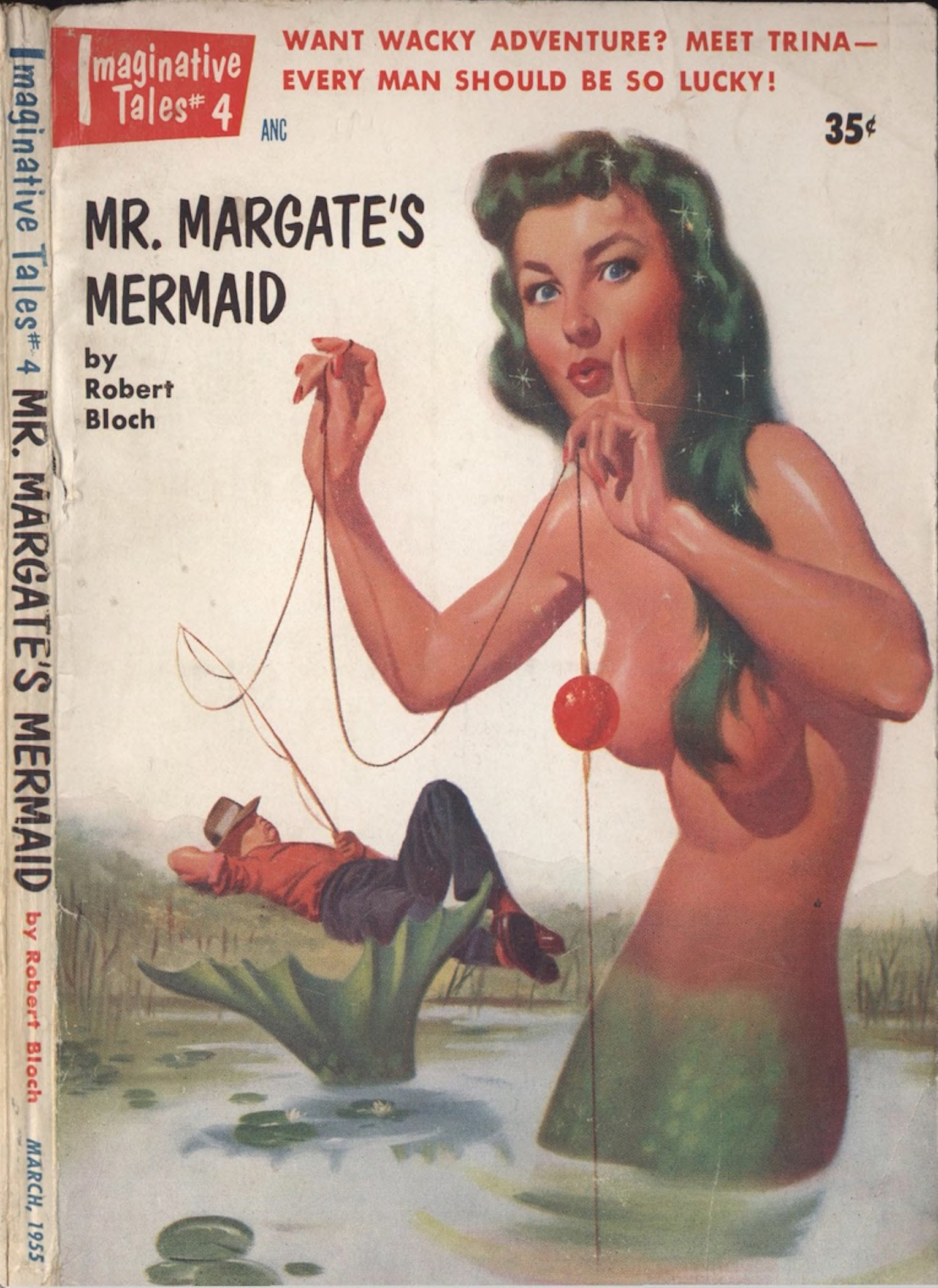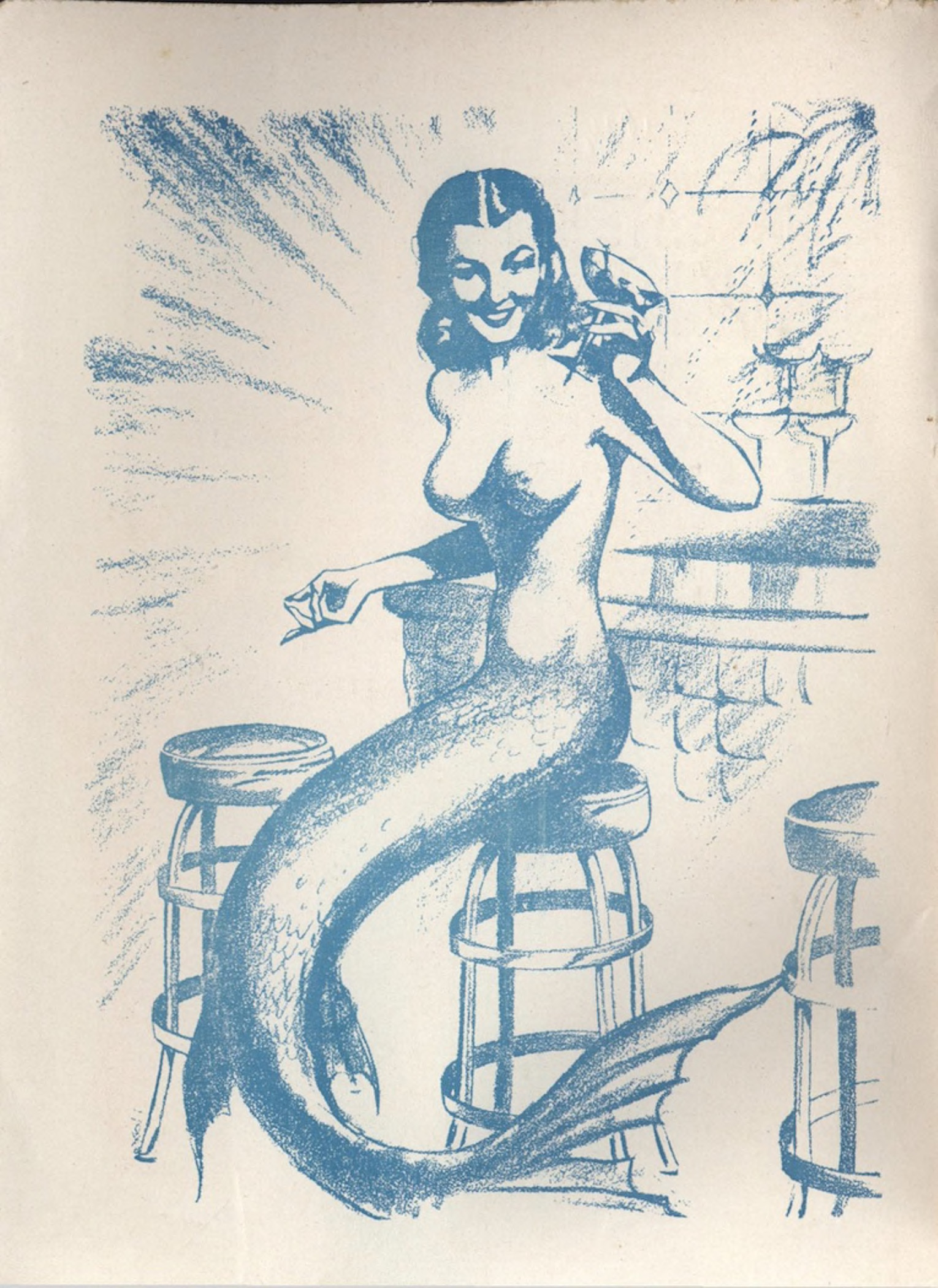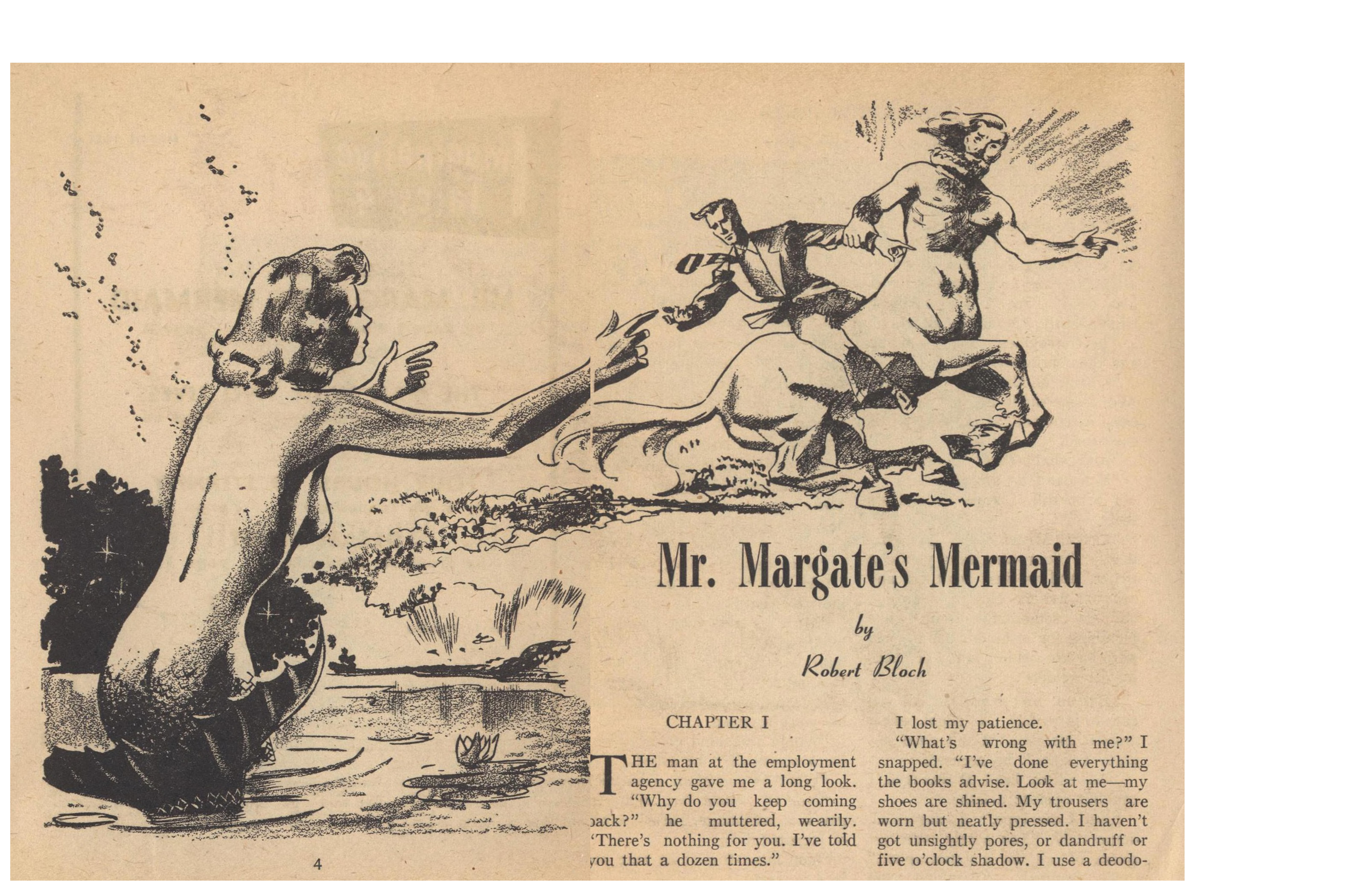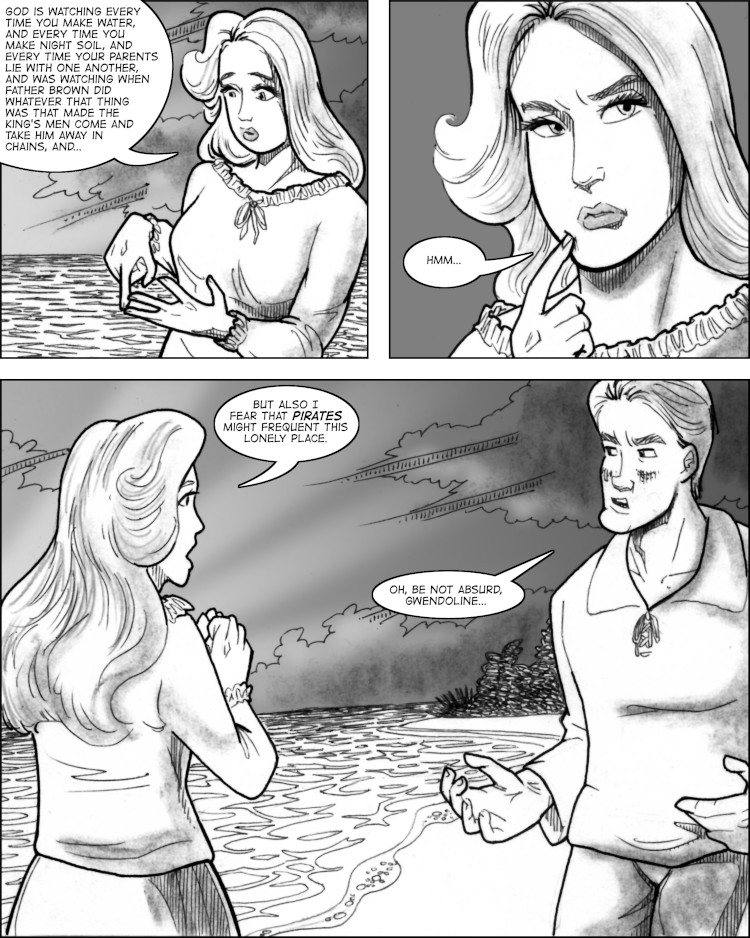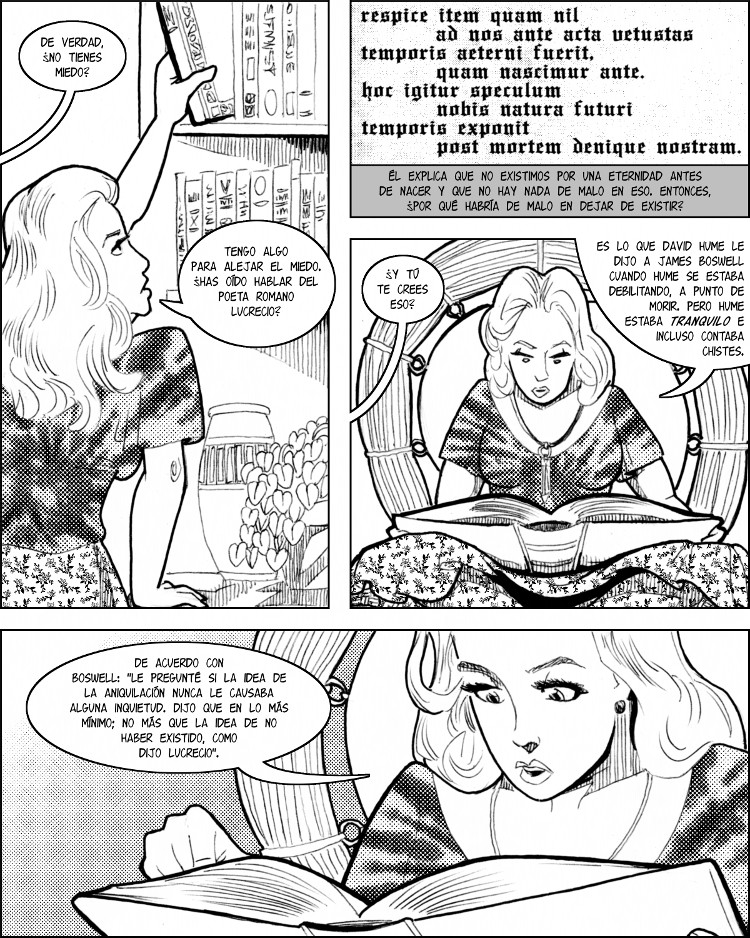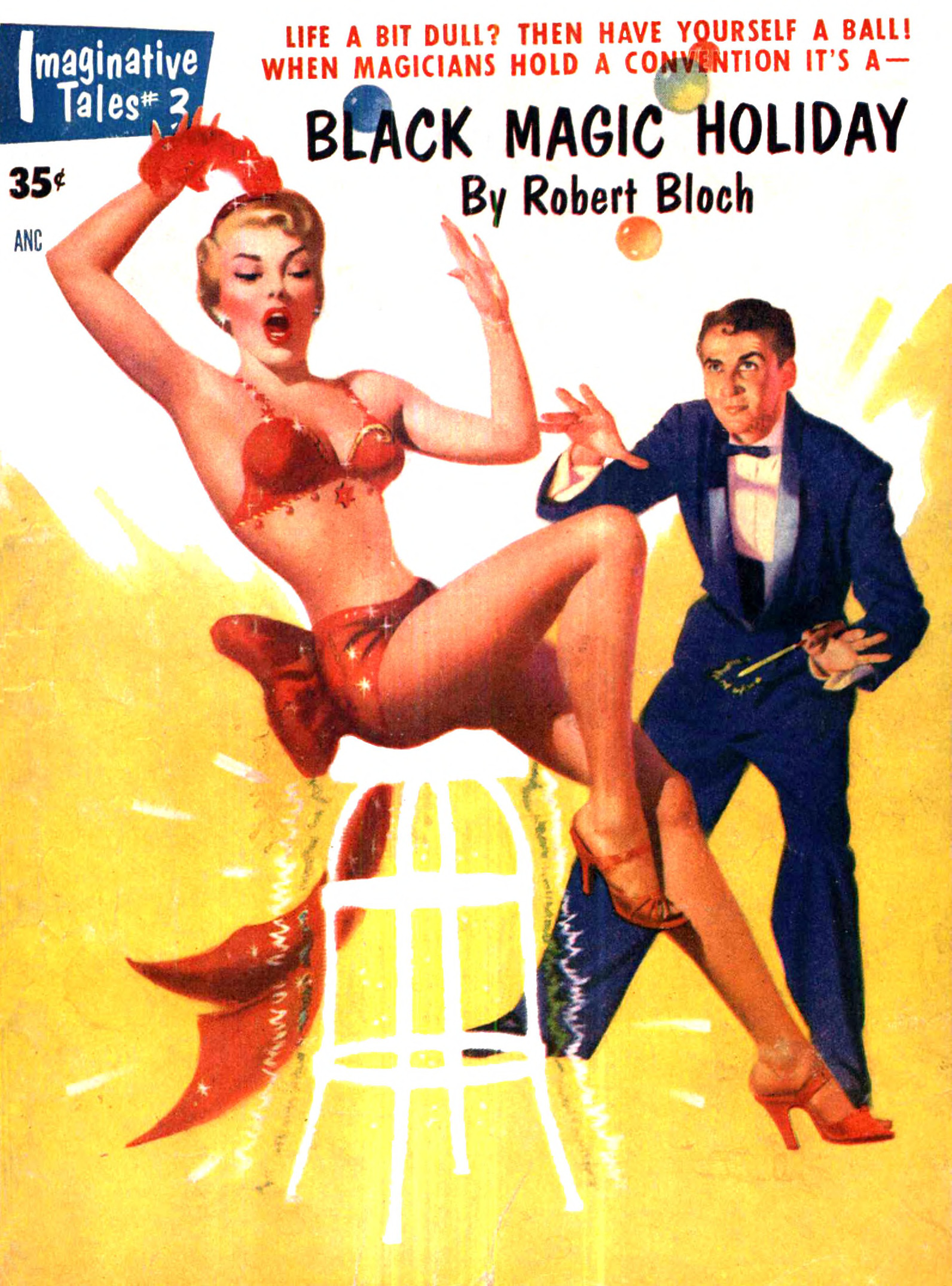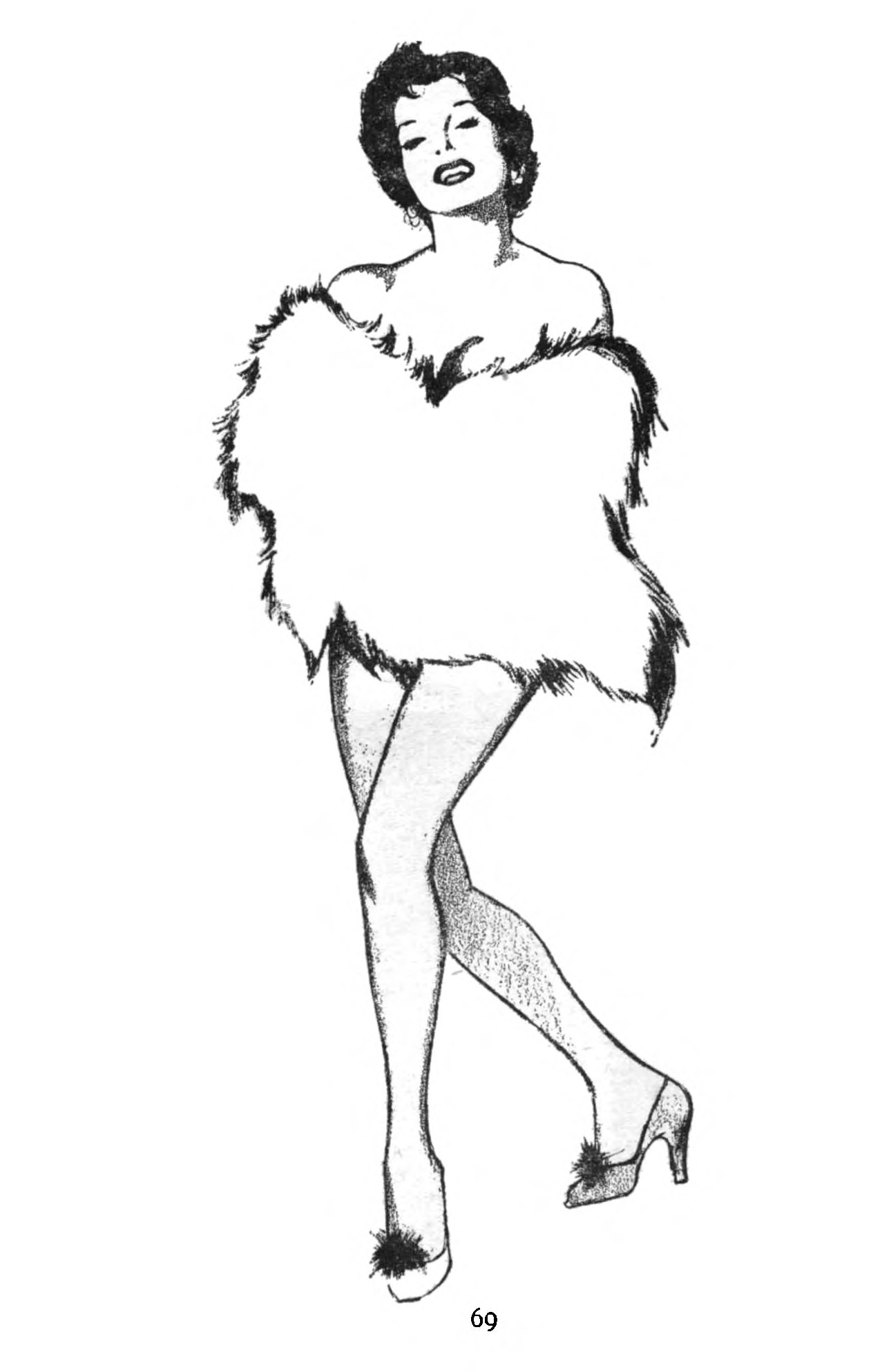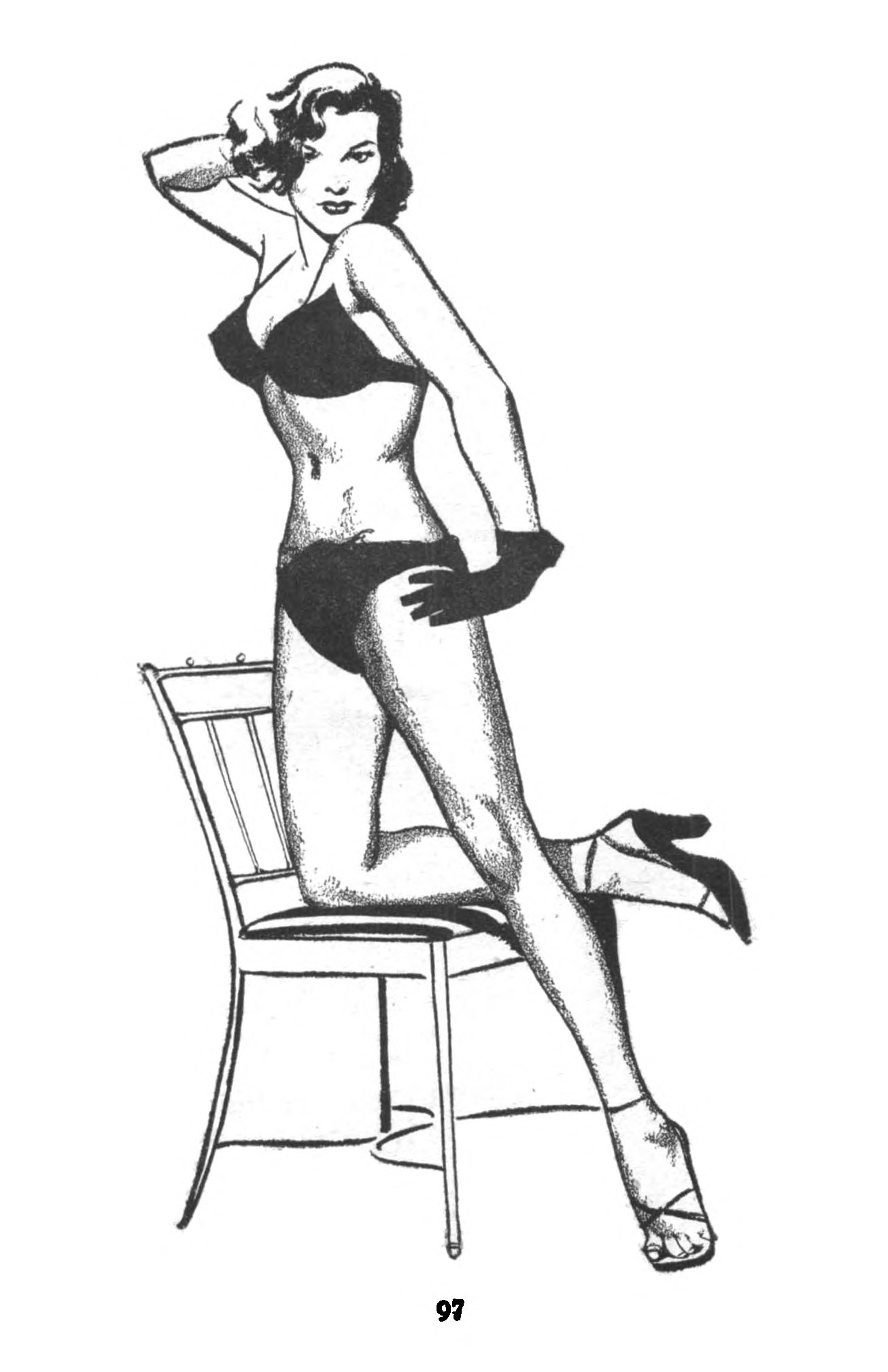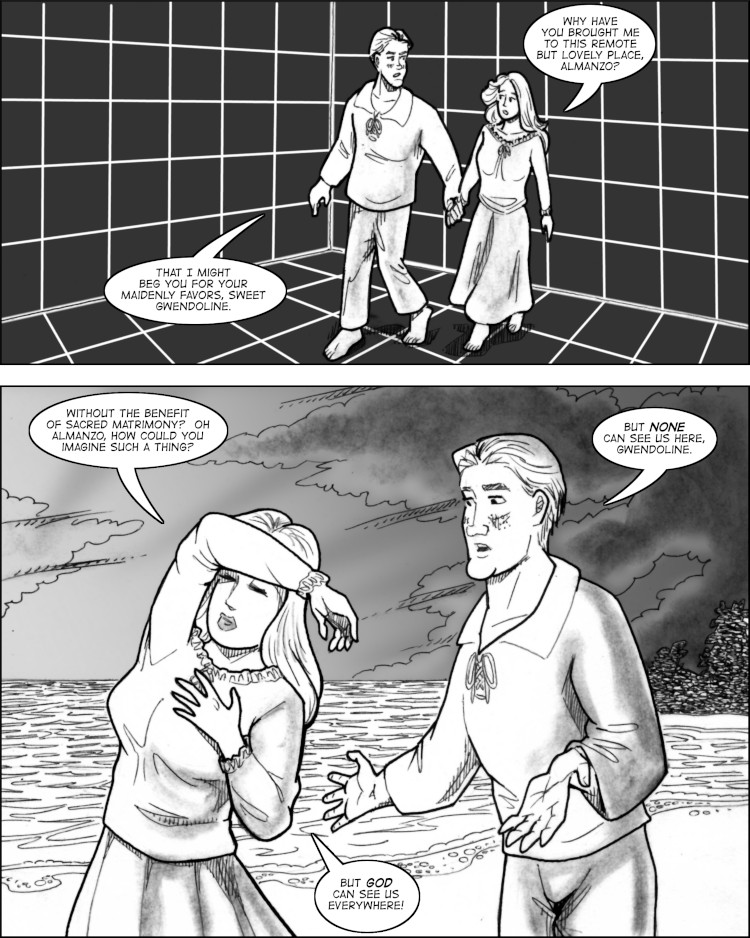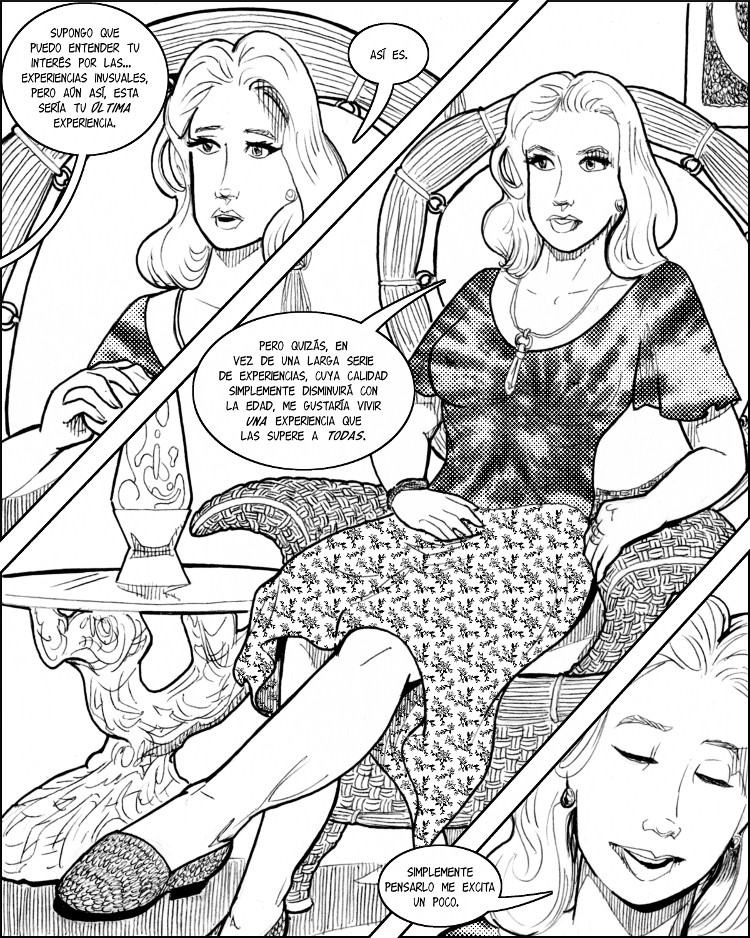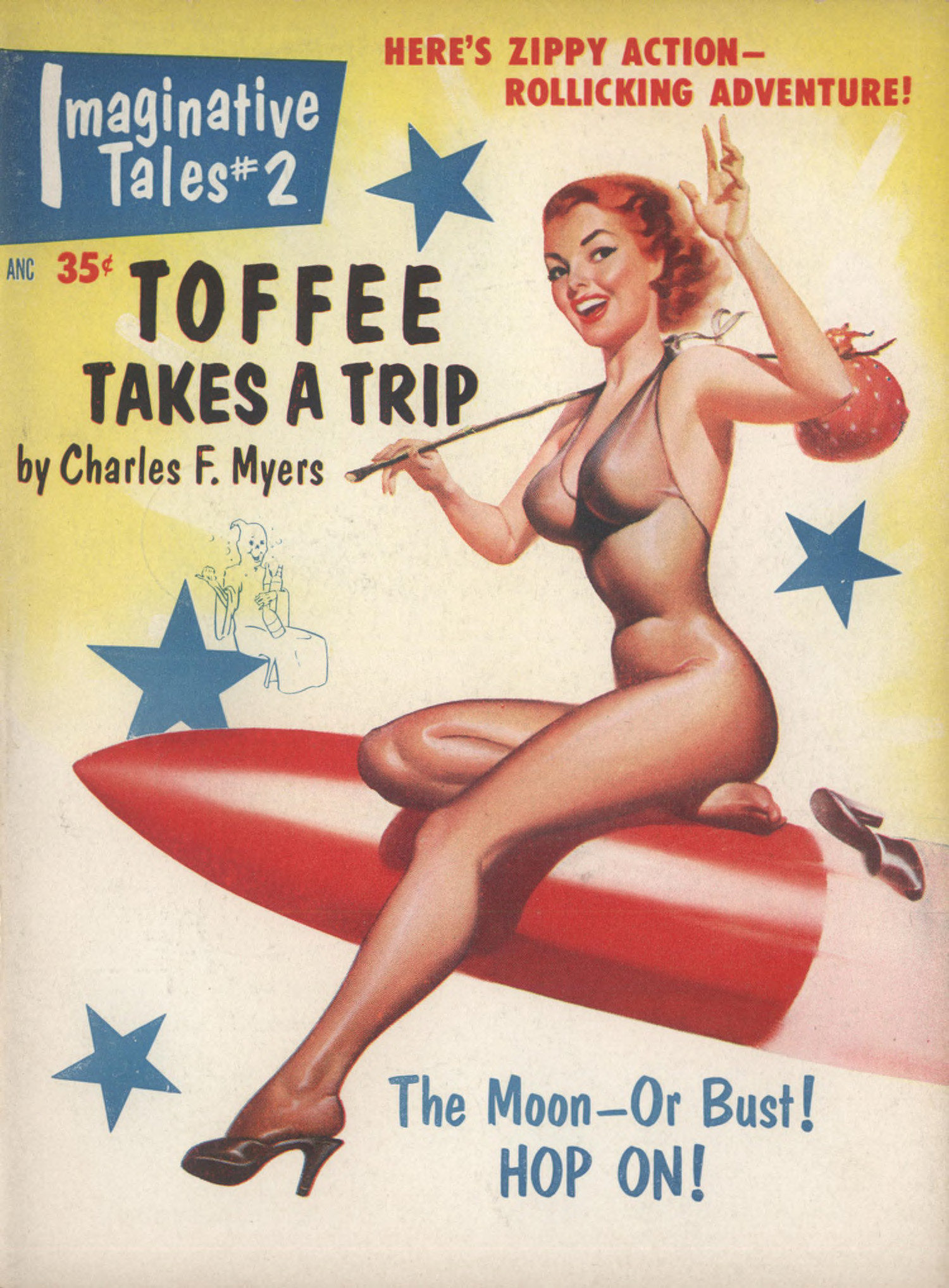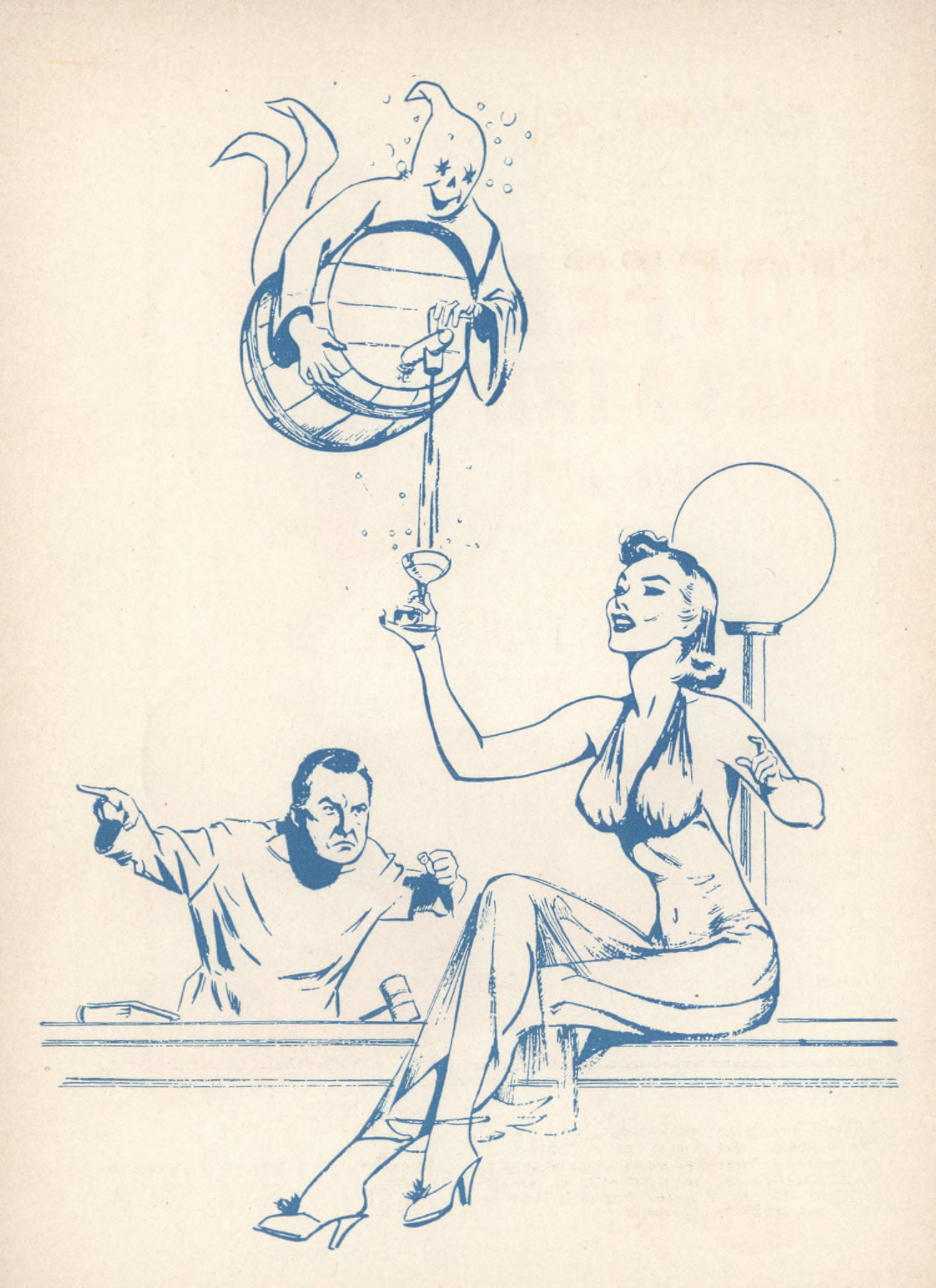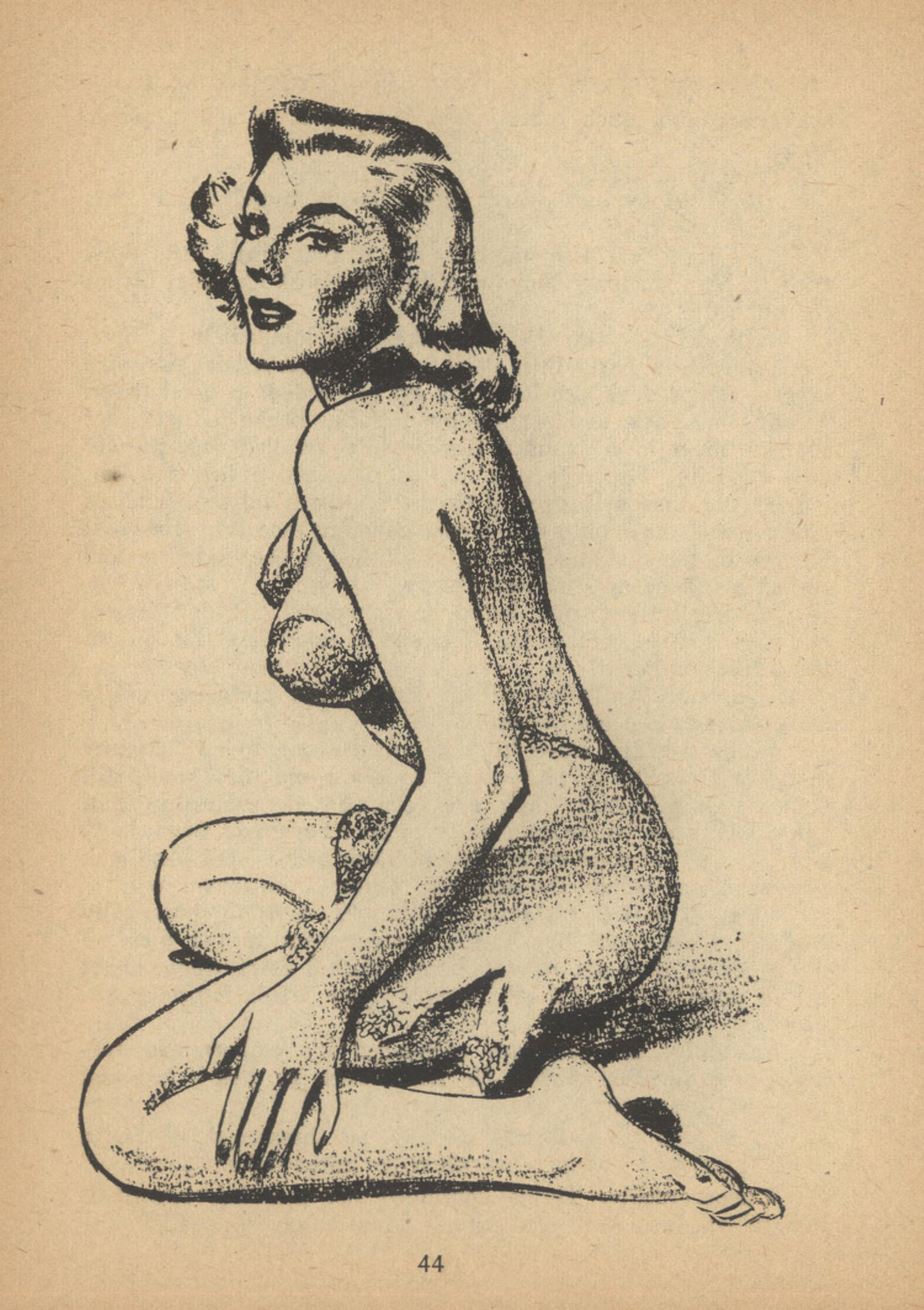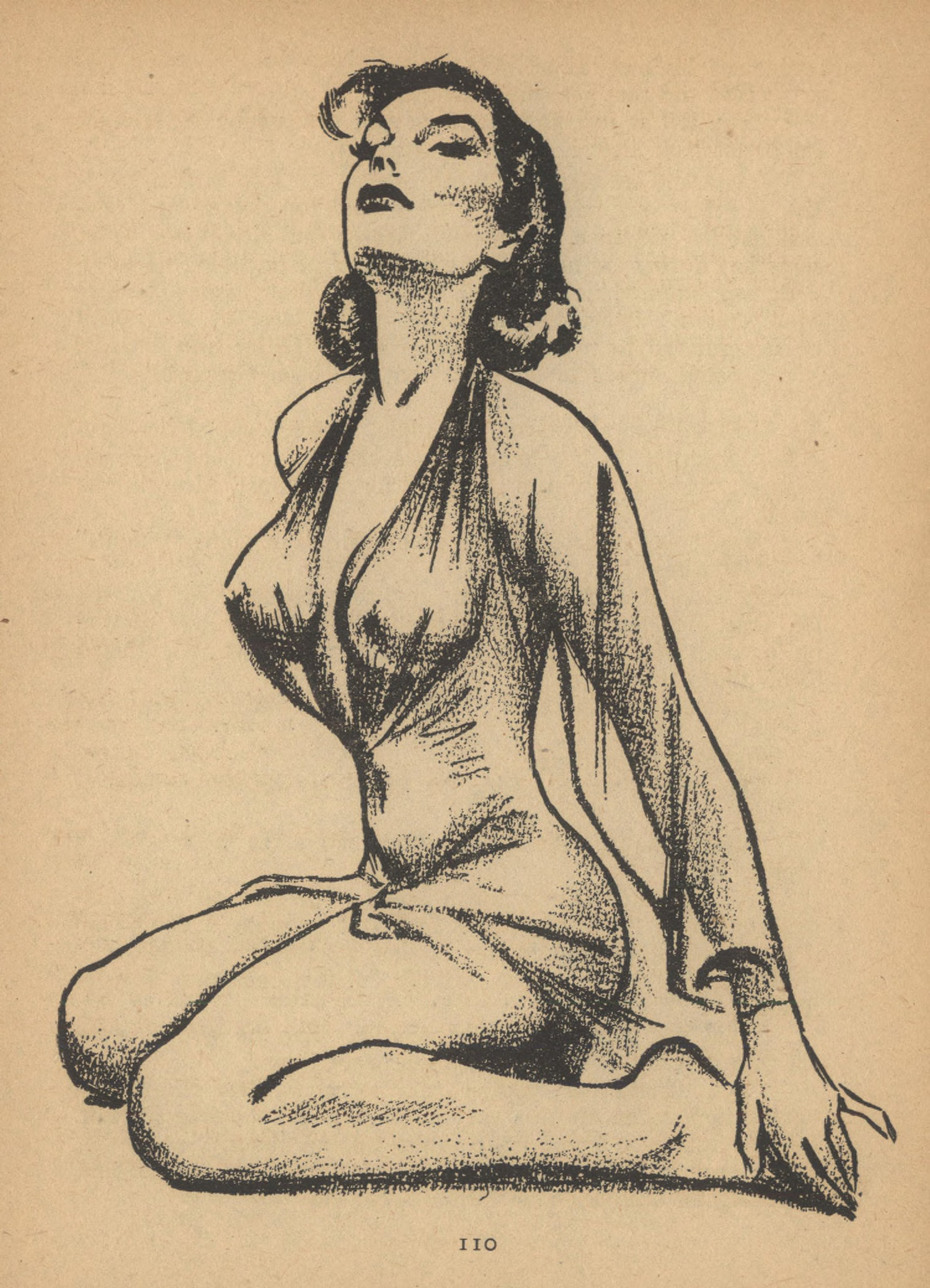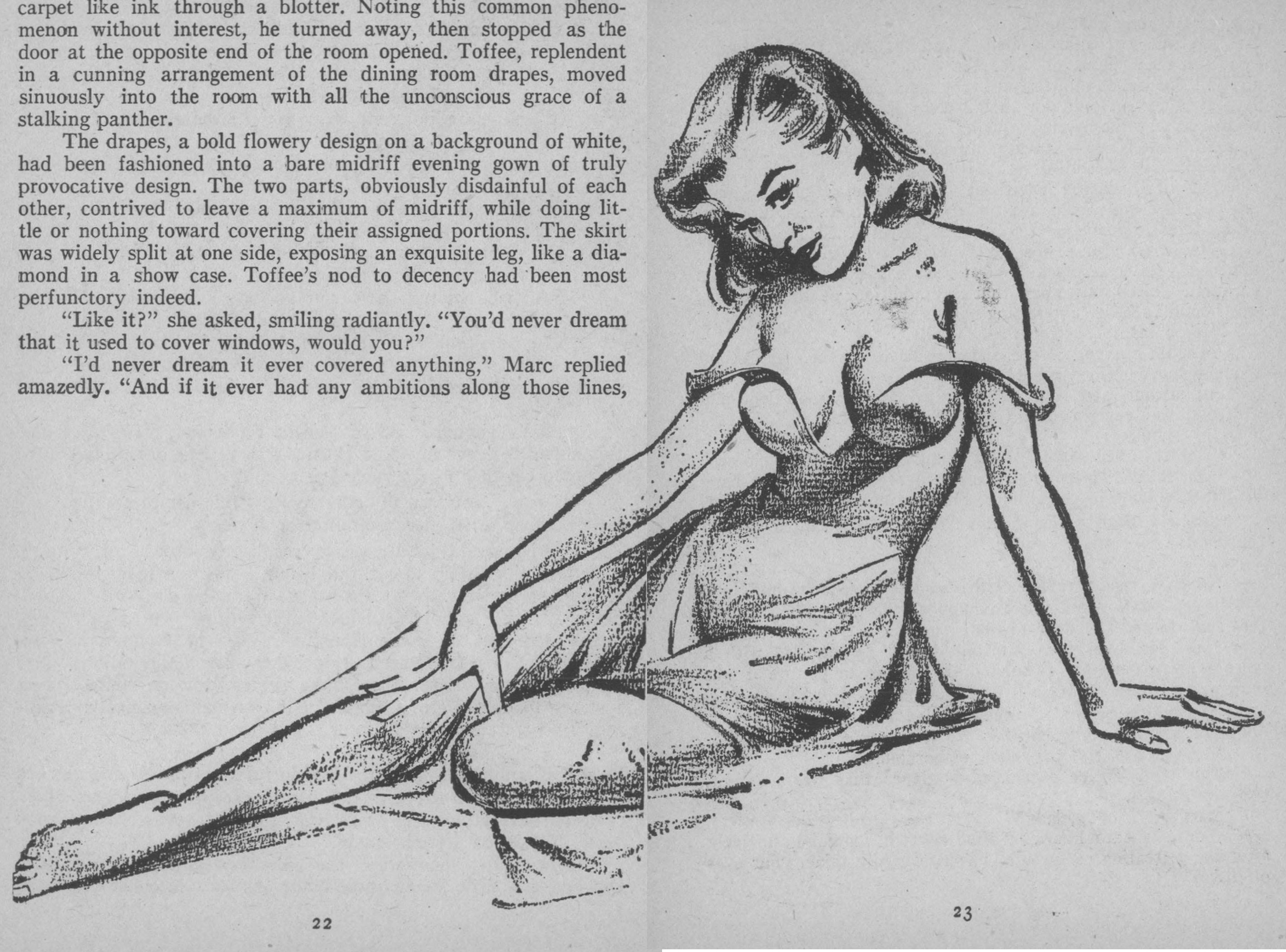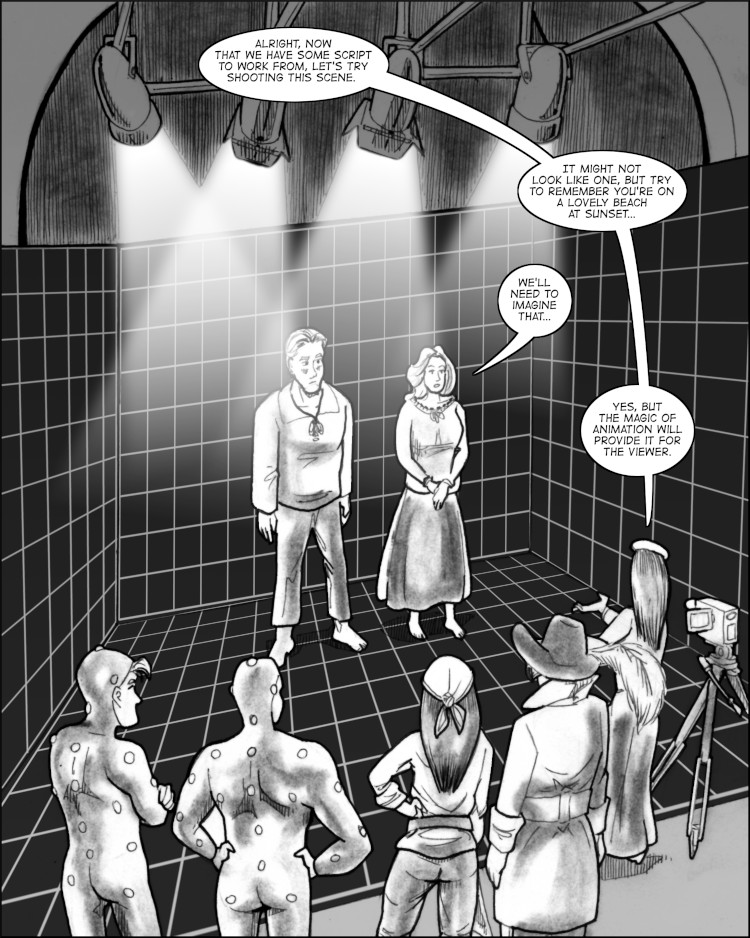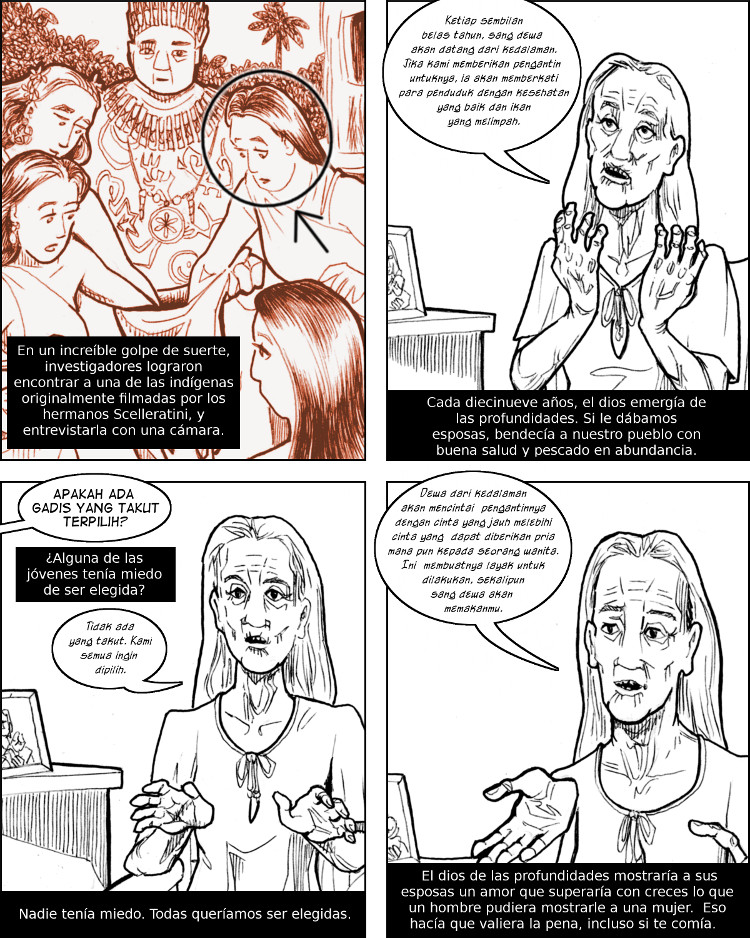
This work is licensed under a Creative Commons Attribution-NonCommercial-ShareAlike 4.0 International License.
PAGE 8 (Four panels)
Panel 1: Identical panel to Page 4, Panel 2 above, except that one of the young women participating in the ritual of drawing has had a circle drawn around her head. An arrow is additionally drawn pointing to the circle.
CAPTION – PSEUDO-NARRATION (1): In a stroke of amazing luck, researchers were able to find one of the original native women filmed by the Scelleratini brothers and interview her on camera.
Translation (1): En un increíble golpe de suerte, investigadores lograron encontrar a una de las indígenas originalmente filmadas por los hermanos Scelleratini, y entrevistarla con una cámara.
Panel 2: The girl from Panel 1, now an ancient, withered old woman of about 95 (“The Ancient.”) She is sitting in a simple chair and is dressed in a plain gray cotton dress.
The Ancient (2):: Ketiap sembilan belas tahun, sang dewa akan datang dari kedalaman. Jika kami memberikan pengantin untuknya, ia akan memberkati para penduduk dengan kesehatan yang baik dan ikan yang melimpah.
SUBTITLE – TRANSLATING THE ANCIENT (3): Every nineteen years, the god would come from the depths. If we gave him brides, he would bless our people with good health and abundant fish.
Translation (3): Cada diecinueve años, el dios emergía de las profundidades. Si le dábamos esposas, bendecía a nuestro pueblo con buena salud y pescado en abundancia.
Panel 3: Same as Panel 2, but a slightly different pose.
Unseen Interviewer (out-of-panel balloon) (4): Apakah ada gadis yang takut terpilih?
The Ancient (5): Tidak ada yang takut. Kami semua ingin dipilih.
SUBTITLE – TRANSLATING THE UNSEEN INTERVIEWER (6): Were any of the girls afraid of being chosen?
Translation (6): ¿Alguna de las jóvenes tenía miedo de ser elegida?
SUBTITLE – TRANSLATING THE ANCIENT (7): No one was afraid. We all wanted to be chosen.
Translation (7): Nadie tenía miedo. Todas queríamos ser elegidas.
Panel 4: Same as Panel 3, but a slightly different pose.
The Ancient (8): Dewa dari kedalaman akan mencintai pengantinnya dengan cinta yang jauh melebihi cinta yang dapat diberikan pria mana pun kepada seorang wanita. Ini membuatnya layak untuk dilakukan, sekalipun sang dewa akan memakanmu.
SUBTITLE – TRANSLATING THE ANCIENT (9): The god of the depths would love his brides with a love far surpassing that which any man could show a woman. That made it worthwhile, even if he would eat you.
Translation (9): El dios de las profundidades mostraría a sus esposas un amor que superaría con creces lo que un hombre pudiera mostrarle a una mujer. Eso hacía que valiera la pena, incluso si te comía.


 Carnada (Español/Versión de página larga)
Carnada (Español/Versión de página larga)
Carnada (Español/Versión deslizante)
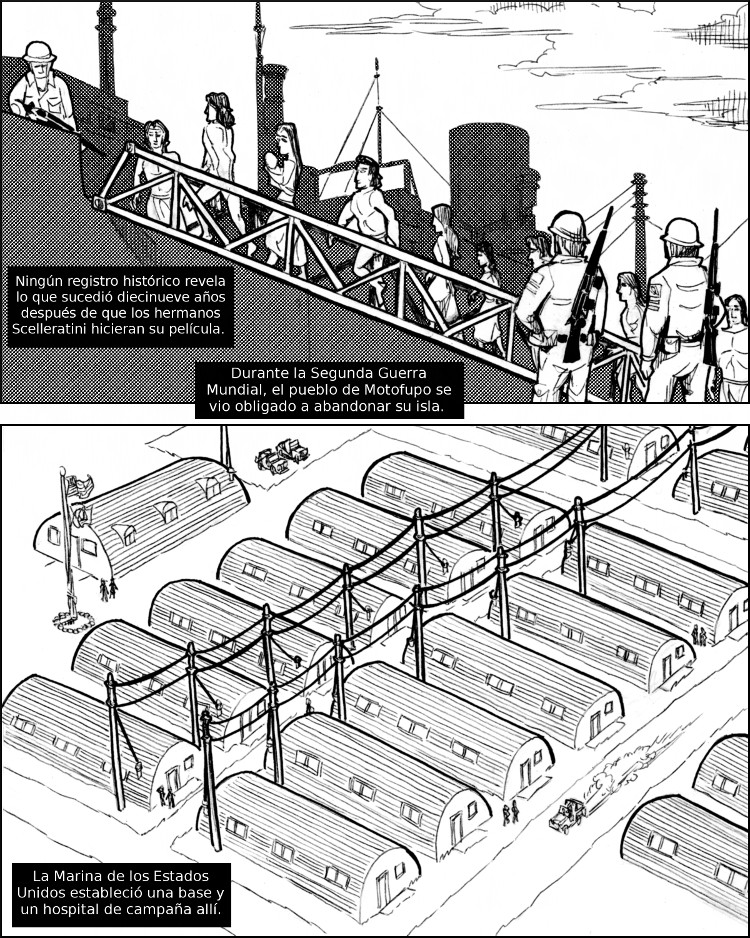

![]()
![]()
![]() Carnada (Español/Versión de página larga)
Carnada (Español/Versión de página larga) 
